Writing a job rejection feedback letter can be a sensitive task, but it's essential to communicate with kindness and clarity. In this article, we'll explore how to craft a thoughtful message that not only delivers the news but also provides constructive insights to help the candidate grow. Understanding the importance of feedback in the job application process can make a significant difference for aspiring professionals. Ready to learn more about creating impactful rejection letters? Let's dive in!

Professional tone
Job rejection feedback can provide valuable insights for candidates seeking to improve their future applications. Constructive criticism, focused on specific areas of the application process, can aid candidates in understanding their performance. Highlighting strengths, such as effective communication skills or relevant experience, alongside suggestions for growth, like enhancing technical proficiency or tailoring resumes to align with job descriptions, can foster a positive learning experience. Maintaining a professional tone throughout the feedback ensures candidates feel respected and encourages continued engagement in their job search endeavors.
Specific reasons for rejection
The feedback process for job rejection often helps candidates understand their strengths and areas for improvement. Common reasons for rejection may include qualifications mismatch (such as lacking specific certifications or degrees), insufficient experience (not meeting the required number of years in a similar role), and failure to demonstrate relevant skills during the interview (such as problem-solving abilities or technical expertise). Cultural fit also plays a crucial role; candidates may be evaluated against company values and team dynamics. Furthermore, competition can be a significant factor; the selected candidate might have had a stronger background or unique experiences that aligned more closely with the position's demands. Clear and constructive feedback is essential to aid professional growth and preparation for future opportunities.
Constructive feedback
Receiving feedback after a job application can provide valuable insights for future opportunities. Applicants often benefit from understanding specific areas for improvement. For example, feedback may highlight that the candidate's experience did not align closely with the job's requirements, such as a lack of relevant technical skills or industry-specific knowledge. Additionally, aspects like communication style during the interview can be addressed, emphasizing the importance of clear and concise responses to behavioral questions. Employers may also point out that showcasing quantitative achievements, such as sales growth percentages or efficiency metrics, could strengthen future applications. Overall, such constructive feedback aims to guide candidates towards presenting themselves more effectively in subsequent interviews.
Encouragement for future applications
Receiving constructive feedback after a job rejection can be a valuable experience for future applications. Focus on maintaining a positive outlook while emphasizing the skills and qualities that the applicant demonstrated during the interview. Appreciate their efforts and encourage them to apply for other positions that may align better with their qualifications. Suggest areas for improvement, such as gaining additional experience, enhancing specific skills, or adapting their resume to better showcase their fit for roles within the organization. Highlight potential upcoming opportunities that may suit their expertise, fostering confidence in their job search.
Appreciation for their interest
Thank you for your interest in the Marketing Manager position at GreenTech Solutions. Your application and the time you invested in the interview process are truly appreciated. After careful consideration of candidates, it was determined that other applicants better matched the specific criteria and experience desired for this role. We encourage you to apply for future opportunities that align with your qualifications, and we wish you continued success in your job search.
Letter Template For Job Rejection Feedback Samples
Letter template of professional feedback for unsuccessful job candidates.
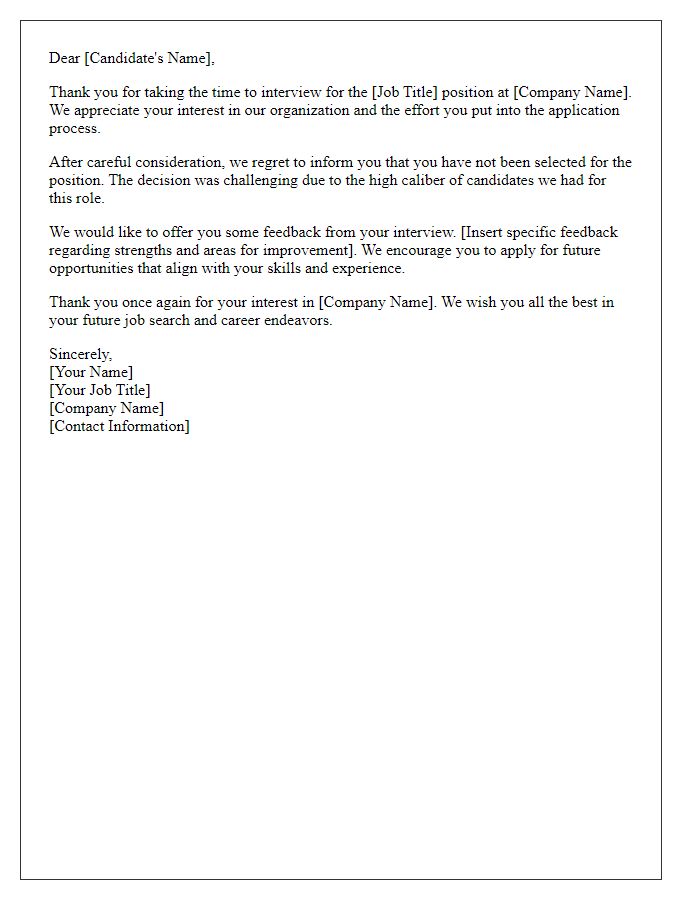

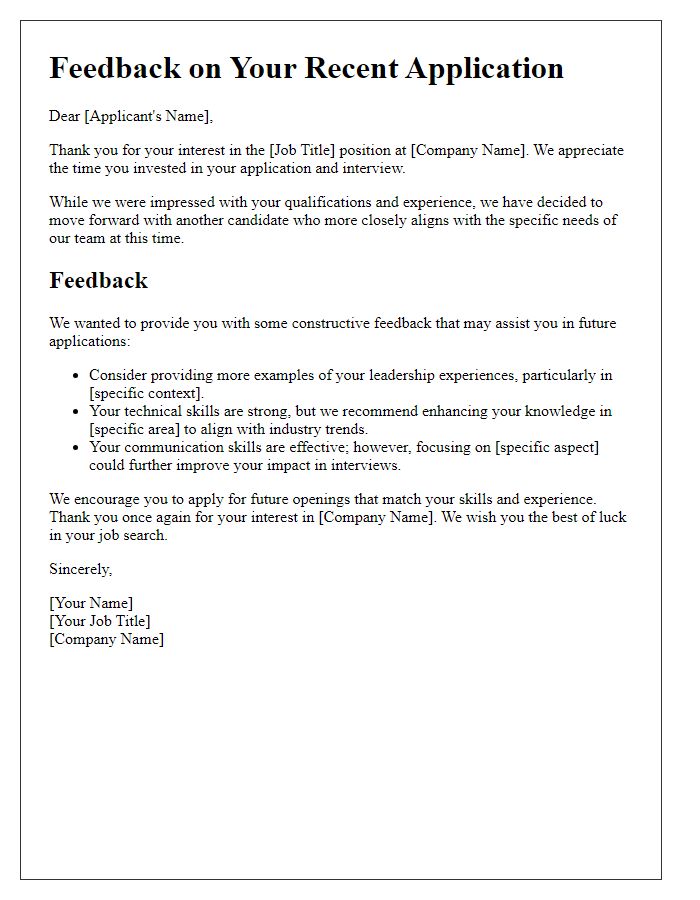
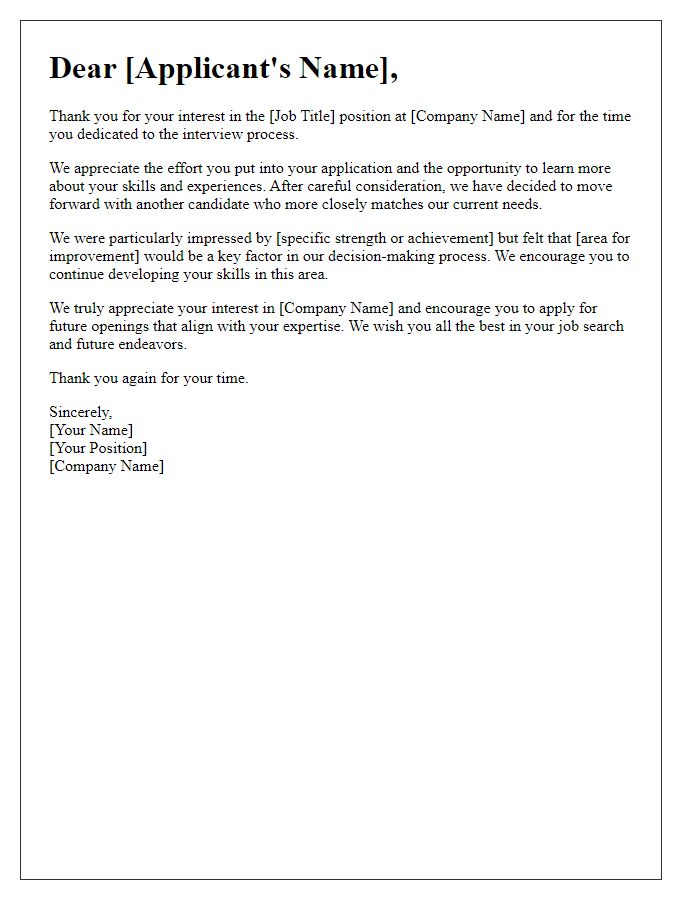
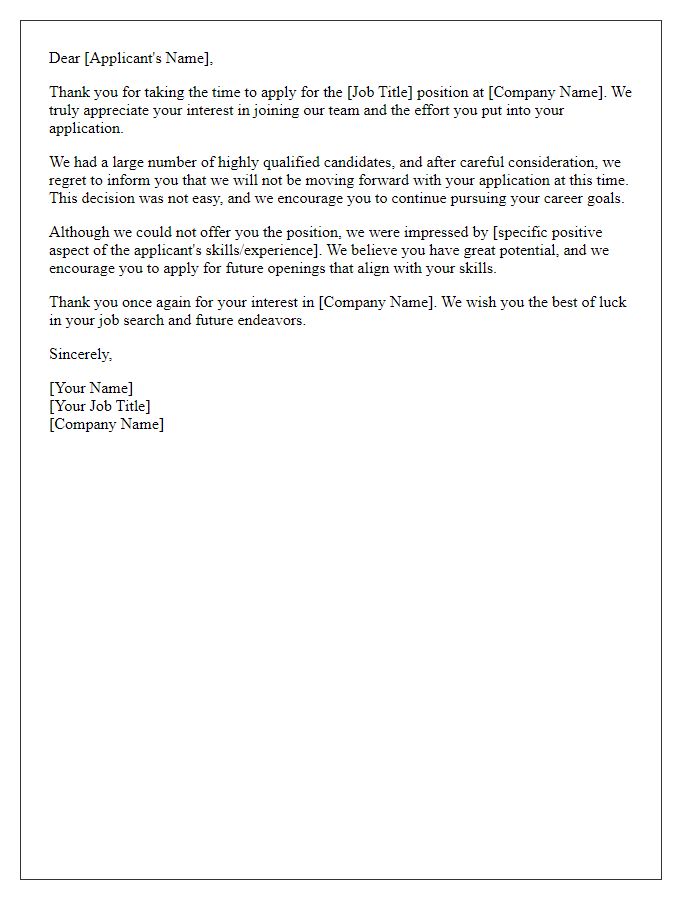
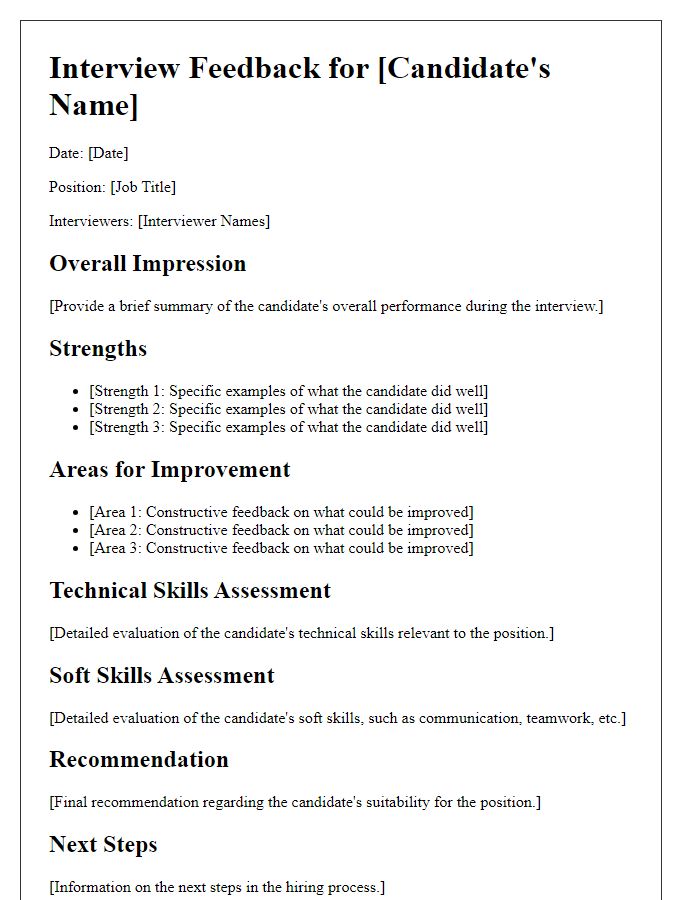
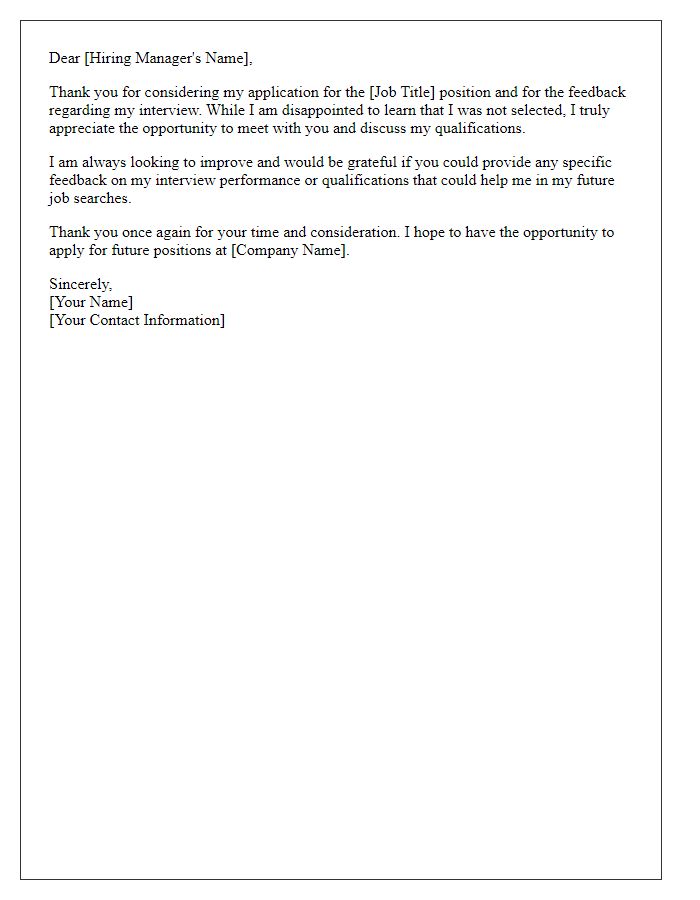
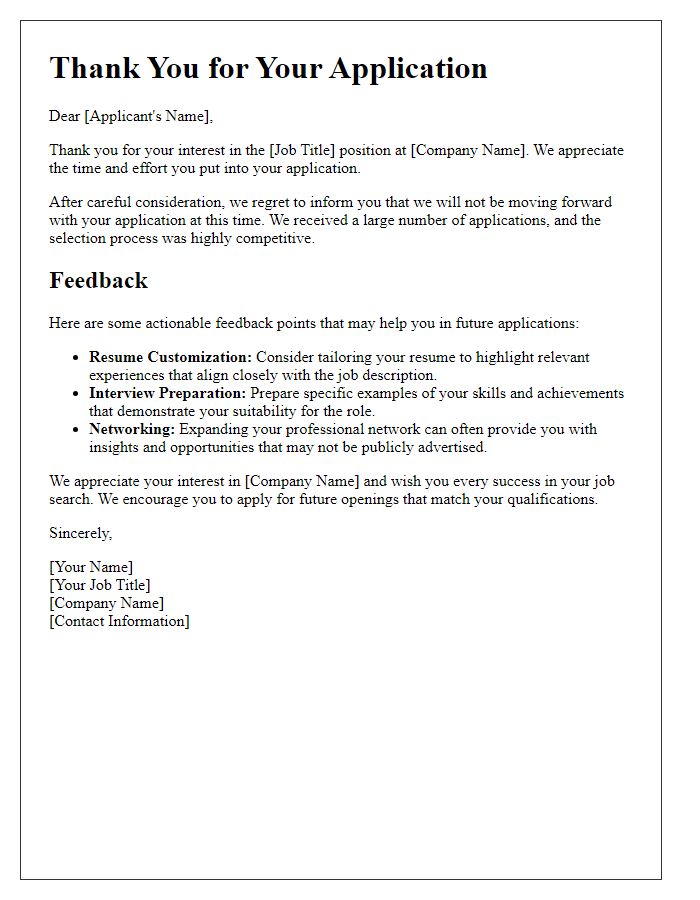
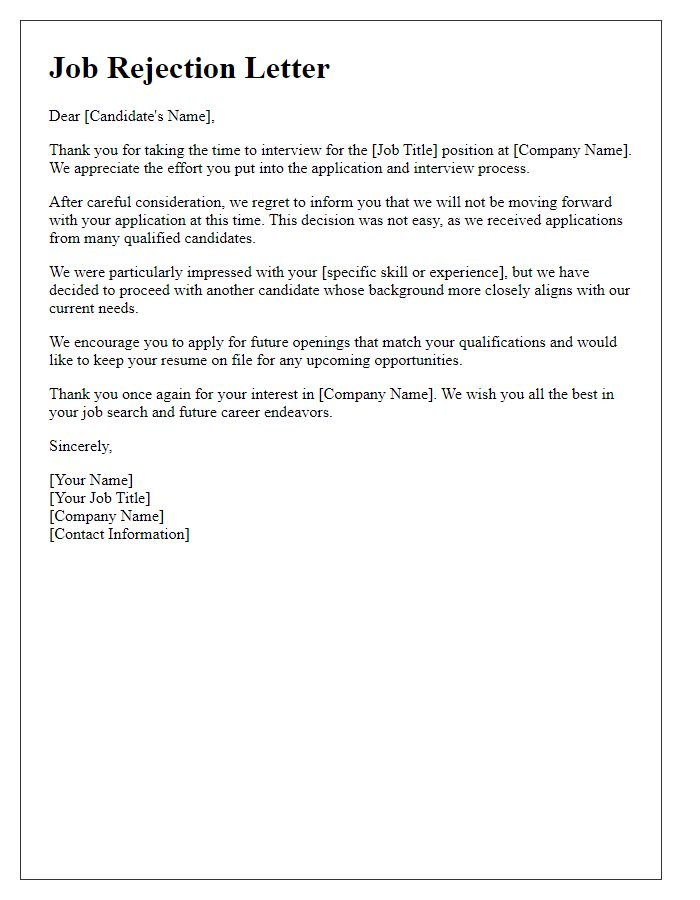
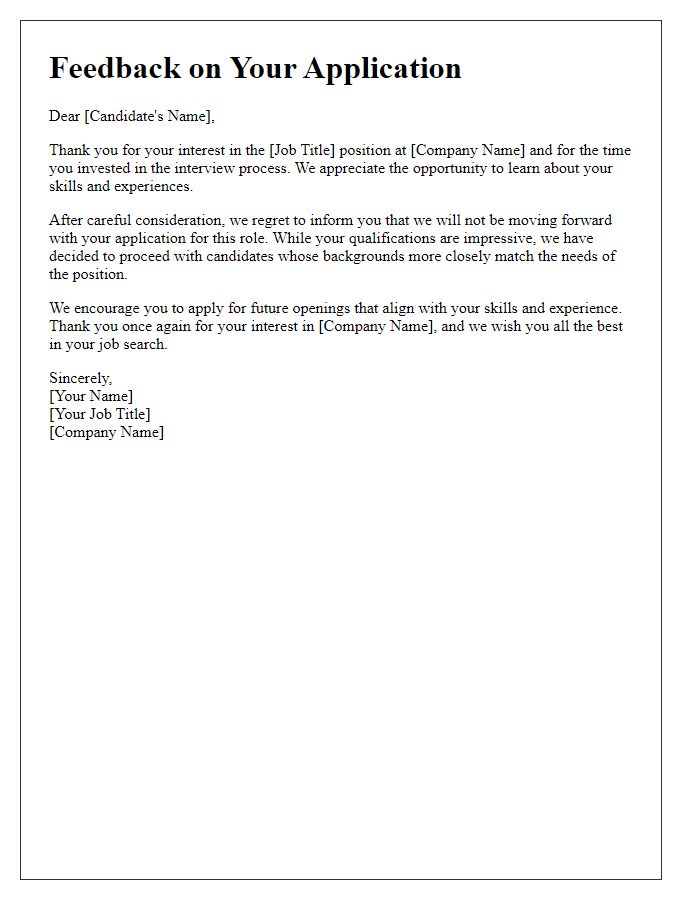
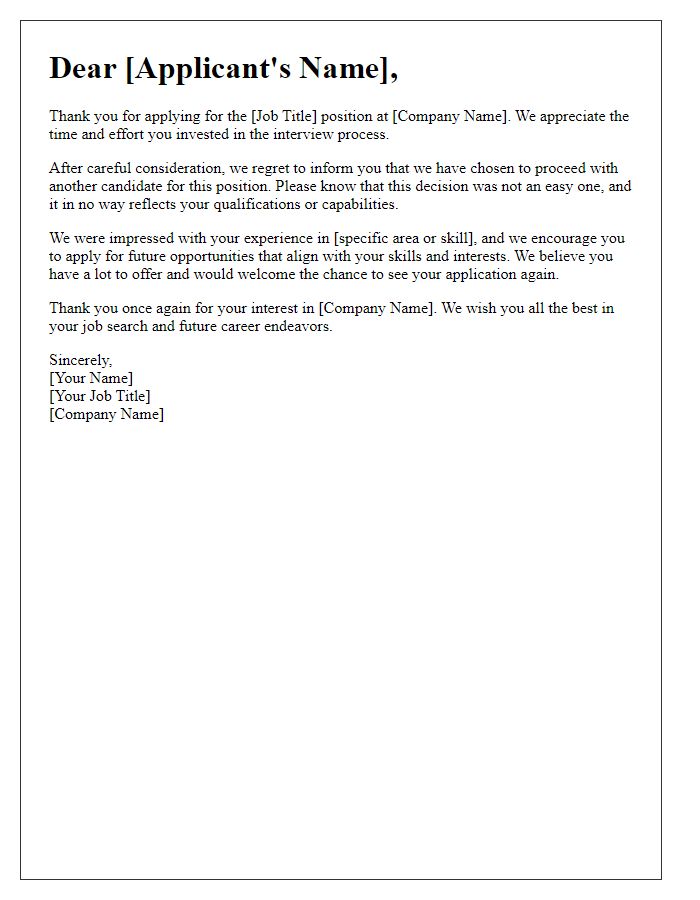


Comments